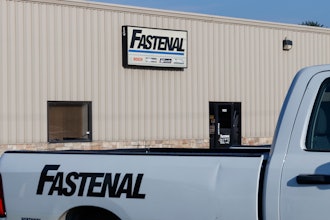
Working with industrial distributors and their manufacturers, we often hear one question: “How do we convert all our quotes into closed sales revenue?”
Often, my response surprises clients and prospects asking for help.
Do you have a sales skills issue or a sales closing mindset issue?
Could you have both issues that need to be fixed?
Shouldn’t we find out the root cause(s) before we launch a sales closing, and coaching program to increase our close rates on quotes?
Teams often leader of distribution and manufacturing companies that supply them, have a strong market knowledge, application experience, and an engineering mindset — so we should not be surprised when these logical leaders grow frustrated with sales, many quotes, and a pipeline often with millions of dollars in sales quotes that are not turning into revenue.
When we help a team improve sales results, we start with a sales effectiveness assessment. We want to understand how the team scores in 21 sales skills, competencies, and beliefs.
One limiting belief we often find in this market is negatively impacting sales close rates.
“If I quote a product and or service, the buyer will buy when they are ready.”
If you have a full pipeline, often hundreds or millions of dollars, that are not closing, your sales problem is likely a closing skills and mindset issue.
In this article, we will unpack how critical a closing mindset is in improving sales close rates and share some mindset shifts from our sales coaching and coaching training.
In sales, success isn’t just about the right product, perfect pitch, or even the latest CRM system. Mindset is at the core of consistent sales performance, especially regarding closing.
Top salespeople know that before you win in the market, you must win in your mind.
What Role Does Mindset Play in Sales Success?
Sales is a mental game; not everyone is cut out for this role. Rejection, objections, delayed decisions, and ghosting are part of the territory. This role requires grit, sales skills, and a mindset to keep striving. What separates the top 10% from the rest isn’t that they avoid these obstacles, but how they respond to them.
A strong sales mindset helps you:
- Stay focused under pressure
- Reframe rejection as redirection
- Maintain confidence without being pushy
- Stay persistent without being desperate
- Engage in meaningful follow-up instead of ghosting prospects who go cold
Could you have team members in sales roles who lack the skill and desire to be in sales?
Finding team members in the wrong roles is not unusual based on their skills, competencies, and beliefs. When we work with large distributors it is not unusual to find 20% or more of their sales team should not be in a sales role. Before hiring more salespeople or prescribing training, we need to determine with the people we have in sales roles whether they want to be in sales roles.
Closing is not an event — it’s a mindset.
Many salespeople treat closing like a final hurdle: awkward, nerve-wracking, and something to be survived. But closers view it differently. For them, the close is a natural result of value delivered, trust earned, and problems solved.
Here’s how the right mindset transforms your ability to close:
1. Belief in Your Value
If you don’t believe in what you’re selling, the prospect won’t either. Mindset begins with internal conviction. When you believe deeply that your product or service changes lives or solves real problems, closing becomes an act of service, not pressure.
Do your salespeople believe in the value your products and services deliver?
Do your salespeople believe in the value your company delivers?
Can they confidently articulate why a customer should work with your company?
If your sales team can’t clearly articulate the value in buying from them and your team – they are your competitor’s best salespeople.
What?
Yes, they diagnosed the issues, educated the customer, and answered all their questions. However , if they lack to skills to share a strong value proposition you run the risk of the educated buyer now putting the project out to bid and possibly losing the sale.
Mindset shift: “I’m not taking their money—I’m helping them invest in a better outcome.”
2. Detachment from Outcome
Paradoxically, the best closers are not desperate to close. They’re invested in helping the buyer make the right decision—but not attached to forcing one.
This mindset creates calm confidence, not “commission breath.”
We have all felt commission breath, when a salesperson is more focused on their compensation than on providing us with the best solution.
Decision-makers today can smell commission breath a mile away.
Do your salespeople have commission breath or are they seen as trusted industry experts?
Mindset shift: “I’m here to help them win, not to get a ‘yes’ at all costs.”
3. Resilience After Rejection
Every “no” gets you closer to a “yes” — but only if your mindset is resilient. Instead of taking it personally, top reps analyze what went wrong, learn, and move forward quickly.
When we find a team with a high fear of rejection that is impacting their results, we deliver rejection-proof training. A big part of this course is developing a rejection-proof mindset.
Mindset shift: “That wasn’t a failure — it was feedback.”
4. Abundance Over Scarcity
Scarcity mindset says: “If I don’t close this one, I’m doomed.”
Abundance mindset says: “There are more prospects. I create opportunities through effort and excellence.”
Scarcity leads to panic and pushiness. Abundance breeds composure and power.
Mindset shift: “I don’t chase sales—I attract them by showing up with clarity, energy, and empathy.”
5. Ownership and Proactivity
Closers don’t blame the prospect, the economy, ( their company, their inventory, and products) or the marketing team. They take ownership of the process and move deals forward with boldness, creativity, and persistence.
The teams I work with quickly realize I am a no-smoke-and-mirrors sales consultant and coach. When I was trained, we had a mindset of “if it is going to be its up to me to figure it out” mindset.
When a sales stall or are lost, do your salespeople quickly blame something?
Mindset shift: “It’s my job to create clarity and momentum. No one else will do it for me.”
How to Build a Strong Sales Mindset to Improve Close Rates
- Assess Sales Effectiveness: Determine your sales team's current state of sales skills, beliefs, and mindsets
- Prescribe: Prescribe sales skills training and coaching to close skills and change limiting beliefs.
- Daily rituals: Read, listen, and watch things that inspire your belief in your value and your mission
- Mental rehearsal: Visualize successful closes before calls or meetings Affirmations—Use positive self-talk, such as “I am a guide, not a pusher. I create clarity and results.”
- Surround yourself: Engage with other high-mindset sellers who lift your thinking
- Reflect often: Journal on what’s working, what you’ve learned, and where you’ve grown
- Training: Role playing - build confidence, leading to a closing mindset
- Sales Playbooks: Loaded with valuable information like how to handle common objections, how to share your value proposition, and strong discovery and qualifying questions
Closing isn’t about clever lines or last-minute deals. It’s about showing up with conviction, clarity, and calm certainty. And that comes from mindset, not manipulation.
If you want to close more, don’t just study techniques. Assess and then build the mindset of someone who believes in what they’re offering and in the value, they bring to every conversation.
Because in sales, mindset isn’t part of the game: it is the game.
Mark Allen Roberts is a senior-level sales and marketing leader, author, speaker, sales skills trainer and sales acceleration coach who writes the popular business development blog No Smoke and Mirrors.






















